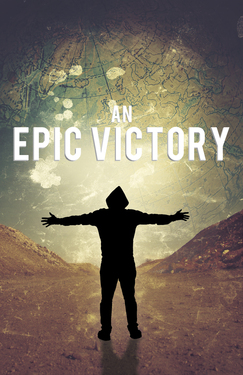|
Reflecting on the achievements and failures of close friends and colleagues, and how the quality of his own efforts varied on his good and bad days, James observed: "Compared with what we ought to be, we are only half awake. Our fires are damped, our drafts are checked. We are making use of only a small part of our possible mental and physical resources."
William James continues, “the human individual lives usually far within his limits; he possesses powers of various sorts which he habitually fails to use. He energizes below his maximum, and he behaves below his optimum.” “Of course there are limits,” James acknowledged. “The trees don’t grow into the sky.” But these outer boundaries of where we will, eventually, stop improving are simply irrelevant for the vast majority of us: “The plain fact remains that men the world over possess amounts of resource, which only very exceptional individuals push to their extremes of use.
You don’t need to be leading anyone. Before I can lead anyone I have to lead myself. I have to read. I have to try and improve one percent a week. I have a handful of interests and I have a lot of experience. I have to get better at the things I’m interested in. I have to understand more deeply the painful experiences I’ve had. I have to every day practice the health—physical, emotional, mental, spiritual—that I suggest to everyone else. Sometimes I don’t. And I feel it. But that’s OK. Don’t regret. Today is a new day. Today is the only day.
The Choose Yourself Guide To Wealth
Tomorrow is 100 percent based on the negotiations you do today.
Constantly study yourself, the negotiations you’ve done, and try to improve so you don’t experience the terrible effects of bad negotiations. One key point to remember; Make Sure Your List is Bigger Than Theirs Let’s say you are negotiating a book advance. They offer a $10,000 advance and they can’t budge higher. That’s fine. Now make your list of other things: how much social media marketing will they do? What bookstores will they get you into? Who has control over book design? What percentage of foreign rights, of digital rights, can you get? Do royalties go up after a certain number of copies are sold? Will they pay for better book placement in key stores? Will they hire a publicist? And so on. Make a list before every negotiation. Make the list as long as possible. If your list is bigger than theirs (size matters), then you can give up “the nickels for the dimes.” This is not just about negotiation. This is to make sure that later you are not disappointed because there is something you forgot. Always prepare. Then you can have faith that because you prepared well, the outcome will also go well. Make sure you know all of your numbers. All of your lists of wants. All of the other side’s numbers. All similar deals in your industry. All similar deals that the other negotiator has done. As many examples of negotiation, particularly in this arena, that you can find. Then make sure you are negotiating from a position of strength. People usually think that means, “I have more power than you.” But this is not what strength is. That will only result in a bad negotiation that will satisfy nobody in the long run. Strength simply means physical health (you’re well slept, you’ve eaten well, you feel energy), emotional health (you are dealing with people you like), mental health (you have done your preparation), and spiritual health (you feel fully deserving of the abundance and gratitude that is coming your way). Having faith in your strength is all you need to bring to the table. Nothing else. Once you do your preparation, have faith that the right negotiation will happen. The Choose Yourself Guide To Wealth
Goals are for losers. Your mind isn’t magic. It’s a moist computer you can program. The most important metric to track is your personal energy. Every skill you acquire doubles your odds of success. Happiness is health plus freedom. Luck can be managed, sort of. Conquer shyness by being a huge phony (in a good way). Fitness is the lever that moves the world. Simplicity transforms ordinary into amazing.
You already know that when your energy is right you perform better at everything you do, including school, work, sports, and even your personal life. Energy is good. Passion is bullshit. failure is where success likes to hide in plain sight. Everything you want out of life is in that huge, bubbling vat of failure. The trick is to get the good stuff out. But in the process I learned a valuable lesson: Good ideas have no value because the world already has too many of them. The market rewards execution, not ideas. From that point on, I concentrated on ideas I could execute. I was already failing toward success, but I didn’t yet know it. I asked what he did for a living and he told me he was CEO of a company that made screws. Then he offered me some career advice. He said that every time he got a new job, he immediately started looking for a better one. For him, job seeking was not something one did when necessary. It was an ongoing process. This makes perfect sense if you do the math. Chances are the best job for you won’t become available at precisely the time you declare yourself ready. Your best bet, he explained, was to always be looking for the better deal. The better deal has its own schedule. I believe the way he explained it is that your job is not your job; your job is to find a better job. This was my first exposure to the idea that one should have a system instead of a goal. In most cases, as far as I can tell, the people who use systems do better. The systems-driven people have found a way to look at the familiar in new and more useful ways. To put it bluntly, goals are for losers. That’s literally true most of the time. All I’m suggesting is that thinking of goals and systems as very different concepts has power. Goal-oriented people exist in a state of continuous presuccess failure at best, and permanent failure at worst if things never work out. Systems people succeed every time they apply their systems, in the sense that they did what they intended to do. The goals people are fighting the feeling of discouragement at each turn. The systems people are feeling good every time they apply their system. That’s a big difference in terms of maintaining your personal energy in the right direction. The system-versus-goals model can be applied to most human endeavors. In the world of dieting, losing twenty pounds is a goal, but eating right is a system. In the exercise realm, running a marathon in under four hours is a goal, but exercising daily is a system. In business, making a million dollars is a goal, but being a serial entrepreneur is a system. For our purposes, let’s say a goal is a specific objective that you either achieve or don’t sometime in the future. A system is something you do on a regular basis that increases your odds of happiness in the long run. If you do something every day, it’s a system. If you’re waiting to achieve it someday in the future, it’s a goal. Systems have no deadlines, and on any given day you probably can’t tell if they’re moving you in the right direction. The minimum requirement of a system is that a reasonable person expects it to work more often than not. How to Fail at Almost Everything and Still Win Big: Kind of the Story of My Life
By and large you are what you do. At least in terms of your identity being externally expressed, what you do defines who you are to those around you in a big way. Conversely, if what you are doing now does not feel like an accurate representation of who you are and what you want to be, then it’s time to focus on acting more in-line with how you feel inside and beginning to update some of your internal identity drivers to support a more accurate external expression through your actions day to day.
If you can dream and not make dreams your master; If you can think and not make thoughts your aim; If you can meet with triumph and disaster; And treat those two impostors just the same, If you can fill the unforgiving minute With sixty seconds’ worth of distance run, Yours is the earth and everything that is in it, And, what is more, you’ll be a man, my son. — Rudyard Kipling Thoughts are discrete packets of energy that flow from your belief system and are the precursor to all conscious action. As those thoughts move from the formless realm of the mind to impact the world we live in they are felt as emotions, or energy in motion. “Just as no one can be forced into a belief, No one can be forced to unbelieve.” — Sigmund Freud Creative Constructs are temporary lifestyle changes that draw on your interests and passions to shuffle the deck in the game of life. Whether this means traveling for the summer, living abroad for half a year, participating in an intensive learning program or going off the grid and working on an organic farm for a season, creative constructs are an integral part of a dream lifestyle. Creative Constructs consist of setting parameters that let you work, learn and play; meet new people, relax and have an experience that is long enough to be meaningful, but not so long that you’re committing to a whole different lifestyle long-term or indefinitely. Lifestyle Entrepreneur: Live Your Dreams, Ignite Your Passions and Run Your Business From Anywhere in The World
It’s now your responsibility to take charge of your own self-concept and your beliefs. You must choose to believe that you can do anything you set your mind to—anything at all—because, in fact, you can. It might help you to know that the latest brain research now indicates that with enough positive self-talk and positive visualization combined with the proper training, coaching, and practice, anyone can learn to do almost anything.
If you assume in favor of yourself and act as if it is possible, then you will do the things that are necessary to bring about the result. If you believe it is impossible, you will not do what is necessary, and you will not produce the result. Either way, it becomes a self-fulfilling prophecy. I am looking for a lot of men who have an infinite capacity to not know what can’t be done. HENRY FORD The words I can’t actually disempower you. They actually make you weaker when you say them. In my seminars, I use a technique called applied kinesiology to test people’s muscle strength as they say different phrases. I have them put their left arm out to their side, and I push down on it with my left hand to see what their normal strength is. Then I have them chose something they think they can’t do, such as I can’t play the piano, and say it out loud. I then push down on their arm again. It is always weaker. Then I have them say, “I can do it” (I can play the piano), and their arm is stronger. You need to base your decisions about what you want to do on your goals and desires—not the goals, desires, opinions, and judgments of your parents, friends, spouse, children, and coworkers. Quit worrying what other people think about you and follow your heart. The Success Principles(TM) - 10th Anniversary Edition: How to Get from Where You Are to Where You Want to Be One of the main reasons why most people don’t get what they want is they haven’t decided what they want. They haven’t defined their desires in clear and compelling detail. So how do you reclaim yourself and your true desires? How do you get back to what you really want with no fear, shame, or inhibition? How do you reconnect with your real passion? You start on the smallest level by honoring your preferences in every situation—no matter how large or small. Don’t think of them as petty. They might be inconsequential to someone else, but they are not to you. If you are going to reown your power and get what you really want out of life, you will have to stop saying, “I don’t know; I don’t care; it doesn’t matter to me”—or the current favorite of teenagers, “Whatever.” When you are confronted with a choice, no matter how small or insignificant, act as if you have a preference. Ask yourself, If I did know, what would it be? If I did care, which would I prefer? If it did matter, what would I rather do? Not being clear about what you want and making other people’s needs and desires more important than your own is simply a habit. You can break it by practicing the opposite habit. One of the easiest ways to begin clarifying what you truly want is to make a list of 30 things you want to do, 30 things you want to have, and 30 things you want to be before you die. This is a great way to get the ball rolling. The Success Principles(TM) - 10th Anniversary Edition: How to Get from Where You Are to Where You Want to Be Habitual self-image is one limiting factor you can work on. Working on self-image involves redefining yourself. Another limiting factor is self-worth. Working on self-worth involves changing what you value. Our self-worth constantly becomes tied up in our performance. If we want to improve, we need to test ourselves on challenging climbs, but a diet of challenging climbs will yield plenty of performances that fall short of our aspirations. Poor performances can make us feel like “failures.” Many people lose effectiveness in their climbing (and other aspects of life) by tying their self-worth to how they are performing. All of us have experienced this to some degree at some time, and many of us feel it constantly. If we are climbing well, we feel good, not just about our climbing but about ourselves. After a “good” day on the crags, we might be confident, upbeat, and self-assured in all our affairs for days afterwards. Conversely, a “bad” day can make us feel down and unsure not just about our climbing but even our jobs, relationships, or our optimism for future happiness. In short, climbing rewards or punishes us, as if we were naïve children and climbing was our parent. Authentic self-worth comes from an internal value system, not from simple achievement. Self-worth comes from the positive results of your effort. Instead of simply falling into this habitual self-worth mindset, analyze it. Focus your attention on it. Discover its logic, or lack thereof. In the light of consciousness, its hold on you will begin to break down. You will see that external achievement is not the root of anything really valuable that we can derive from a climbing challenge. So what is? What can we take away and really use? The answer: learning. Hard climbs push us out of our comfort zone, and once in the unknown, we can learn. Often, in the midst of the challenge, we push ourselves in ways we didn’t know possible, gaining knowledge that we can’t lose. And, if our effort is strong and creative, we can gain that knowledge regardless of the outcome of the climb. Achievement may or may not be the result of an effort, but the essential payoff of the experience is learning. If, on the other hand, the self-worth you derive from your climbing is based on what you learn during the experience, then you are less concerned about the outcome of your efforts and able to focus more on the effort itself. What really matters when facing a challenge? What matters is learning. You want to test yourself, throw yourself into something outside your comfort zone and see what you’re capable of. Your true goal is not to conquer fifty feet of inanimate rock, but to expand your abilities through learning. With a focus on learning, awareness improves. The Rock Warrior's Way: Mental Training for Climbers While coming to grips with my new reality wasn’t easy, and at times I couldn’t help but wonder—why did this happen to me?—I had to take responsibility for getting my life back. Instead of complaining about how things should be, I embraced how things were. I stopped putting energy into wishing my life were any different—into wishing bad things didn’t happen to me—and instead focused 100% on making the best of what I had. Since I couldn’t change the past, I focused on moving forward. I dedicated my life to fulfilling my potential and achieving my dreams so I could discover how to empower others to do the same. And, as a result of choosing to be genuinely grateful for all that I had, unconditionally accepting of all that I didn’t, and accepting total responsibility for creating all that I wanted, this potentially devastating car accident ultimately became one of the best things that ever happened to me. Hinging on my belief that everything happens for a reason—but that it is our responsibility to choose the most empowering reasons for the challenges, events and circumstances of our lives—I used my accident to fuel a triumphant comeback. The degree to which you accept responsibility for everything in your life is precisely the degree of personal power you have to change or create anything in your life. Know that wherever you are in your life right now is both temporary, and exactly where you are supposed to be. You have arrived at this moment to learn what you must learn, so you can become the person you need to be to create the life you truly want. Even when life is difficult or challenging—especially when life is difficult and challenging—the present is always an opportunity for us to learn, grow, and become better than we’ve ever been before. You are in the process of writing your life story, and no good story is without a hero or heroine overcoming their fair share of challenges. The good news is that you have the ability to change—or create—anything in your life, starting right now The Miracle Morning: The Not-So-Obvious Secret Guaranteed to Transform Your Life (Before 8AM) The ability to choose cannot be taken away or even given away—it can only be forgotten. How Do We Forget Our Ability to Choose? One important insight into how and why we forget our ability to choose comes out of the classic work of Martin Seligman and Steve Maier, who stumbled onto what they later called “learned helplessness” while conducting experiments on German shepherds. Seligman and Maier divided the dogs into three groups. The dogs in the first group were placed in a harness and administered an electric shock but were also given a lever they could press to make the shock stop. The dogs in the second group were placed in an identical harness and were given the same lever, and the same shock, with one catch: the lever didn’t work, rendering the dog powerless to do anything about the electric shock. The third group of dogs were simply placed in the harness and not given any shocks. Afterwards, each dog was placed in a large box with a low divider across the center. One side of the box produced an electric shock; the other did not. Then something interesting happened. The dogs that either had been able to stop the shock or had not been shocked at all in the earlier part of the experiment quickly learned to step over the divider to the side without shocks. But the dogs that had been powerless in the last part of the experiment did not. These dogs didn’t adapt or adjust. They did nothing to try to avoid getting shocked. Why? They didn’t know they had any choice other than to take the shocks. They had learned helplessness. To become an Essentialist requires a heightened awareness of our ability to choose. We need to recognize it as an invincible power within us, existing separate and distinct from any other thing, person, or force. William James once wrote, “My first act of free will shall be to believe in free will.”2 That is why the first and most crucial skill you will learn on this journey is to develop your ability to choose choice, in every area of your life. When we forget our ability to choose, we learn to be helpless. Drip by drip we allow our power to be taken away until we end up becoming a function of other people’s choices—or even a function of our own past choices. In turn, we surrender our power to choose. That is the path of the Nonessentialist. The overwhelming reality is: we live in a world where almost everything is worthless and a very few things are exceptionally valuable. As John Maxwell has written, “You cannot overestimate the unimportance of practically everything.” Essentialism: The Disciplined Pursuit of Less |
Click to set custom HTML
Categories
All
Disclosure of Material Connection:
Some of the links in the post above are “affiliate links.” This means if you click on the link and purchase the item, I will receive an affiliate commission. Regardless, I only recommend products or services I use personally and believe will add value to my readers. I am disclosing this in accordance with the Federal Trade Commission’s 16 CFR, Part 255: “Guides Concerning the Use of Endorsements and Testimonials in Advertising.” |
Photos from Wesley Oostvogels, Thomas Leuthard, swanksalot, Robert Scoble, Lord Jim, Pink Sherbet Photography, jonrawlinson, MonsterVinVin, M. Pratter, greybeard39, Stepan Mazurov, deanmeyersnet, Patrick Hoesly, Lord Jim, Dcysiv Moment, fdecomite, h.koppdelaney, Abode of Chaos, pasa47, gagilas, BAMCorp, cmjcool, Abode of Chaos, faith goble, nerdcoregirl, Adrian Fallace Design & Photography, jmussuto, Easternblot, Jeanne Menjoulet & Cie, aguscr, h.koppdelaney, Saad Faruque, ups2006, Unai_Guerra, erokism, MsSaraKelly, Jem Yoshioka, tony.cairns, david drexler, Reckless Dream Photography, Raffaele1950, kevin dooley, weegeebored, Cast a Line, Zach Dischner, Eddi van W., kmardahl, faungg's photo, Alan Light, acme, Evan Courtney, specialoperations, Mustafa Khayat, darkday., Orin Zebest, Robert S. Donovan, disparkys, kennethkonica, aubergene, Nina Matthews Photography, infomatique, Patrick Hoesly, j0sh (www.pixael.com), SmithGreg, brewbooks, tjsander, The photographer known as Obi, Simone Ramella, striatic, jmussuto, m.a.r.c., jfinnirwin, Nina J. G., pellesten, dreamsjung, misselejane, Design&Joy, eeskaatt, Bravo_Zulu_, No To the Bike Parking Tax, Kecko, quinn.anya, pedrosimoes7, tanakawho, visualpanic, Brooke Hoyer, Barnaby, Fountain_Head, tripandtravelblog, geishaboy500, gordontarpley, Rising Damp, Marc Aubin2009, belboo, torbakhopper, JarleR, aakanayev, santiago nicolau, Official U.S. Navy Imagery, chinnian, GS+, andreasivarsson, paulswansen, victoriapeckham, Thomas8047, timsamoff, ConvenienceStoreGourmet, Jrwooley6, DeeAshley, ethermoon, torbakhopper, Mark Ramsay, dustin larimer, shannonkringen, Stf.O, Todd Huffman, B Rosen, Lord Jim, Jolene4ever, Ben K Adams, Clearly Ambiguous, Daniele Zedda, Ryan Vaarsi, MsSaraKelly, icebrkr, jauhari, ajeofj3, jenny downing, Joi, GollyGforce, Andrew from Sydney, Lord Jim, 'Retard' (says University of Missouri), drukelly, Sullivan Ng, jdxyw, infomatique, AlicePopkorn, RAA408, Abode of Chaos, SaMaNTHa NiGhTsKy, as always..., D@LY3D, Angelo González, the sugary smell of springtime!, Marko Milošević, pedrosimoes7, MartialArtsNomad.com, 401(K) 2013, Sigfrid Lundberg, MoneyBlogNewz, NBphotostream, the stag and doe, Jemima G, bablu121, .reid., jared, EastsideRJ, Alex Alvisi, Marie A.-C., geishaboy500, modomatic, starsnostars., Hardleers, Sarah G..., donielle, Danny PiG, bigcityal, || UggBoy♥UggGirl || PHOTO || WORLD || TRAVEL ||, -KOOPS-, seafaringwoman, kingkongirl, Richard Masoner / Cyclelicious, Hans Gotun, gruntzooki, Duru..., Vectorportal, Peter Hellberg, Alexandre Hamada Possi, Santi Siri, Joshua Rappeneker, a little tune, Patricia Mangual, erokism, woodleywonderworks, Philippe Put, Purple Sherbet Photography, Abode of Chaos, greybeard39, swanksalot, greyloch, Omarukai, Marc_Smith, SLPTWRK, Peter Alfred Hess, illum, MarioMancuso, willc2, _titi, Lightsurgery, Rennett Stowe, feverblue, Esteman., Keith Allison, DCist, h.koppdelaney, Mike Deal aka ZoneDancer, Jos Dielis, The Wandering Angel, Nathaniel KS, MsSaraKelly, Frank Lindecke, Kara Allyson, JeremyGeorge, deoman56, gagilas, Xoan Baltar, Luke Lawreszuk, Eric-P, fdecomite, lorenkerns, masochismtango, Adrian Fallace Design & Photography, anarchosyn, -= Bruce Berrien =-, radiant guy, Free Grunge Textures - www.freestock.ca, El Bibliomata, antmoose, Pedro Belleza, Fitsum Belay/iLLIMETER, Nathan O'Nions, denise carbonell, swanksalot, ▓▒░ TORLEY ░▒▓, Marco Gomes, Justin Ornellas, jenni from the block, René Pütsch, eddieq, thombo2, Ben Mortimer Photography, :moolah, ideowl, joaquinuy, wiredforlego, Rafa G. _, derrickcollins, Fishyone1, ben pollard, Admiralspalast Berlin, Georgio, garybirnie.co.uk, fiskfisk, MoreFunkThanYou, xJason.Rogersx, kevin dooley, David Holmes2, Kris Krug, JD Hancock, Images_of_Money, andriux-uk events, Tyfferz, decafinata, jonrawlinson, isado, Lohan Gunaweera, Derek Mindler, Mike "Dakinewavamon" Kline, themostinept, kiwanja, erokism, dktrpepr, Keoni Cabral, denise carbonell, Neal., tonystl, ericmay, Ally Mauro, erokism, Georgie Pauwels, anitakhart, Ivan Zuber, r2hox, Aka Hige, badjonni, striatic, Arry_B, 401(K) 2012, pvera, Lord Jim, Dredrk aka Mr Sky, TerryJohnston, eschipul, wiredforlego, Yuliya Libkina, fabbio, Justin Ruckman, David Boyle, Matthew Oliphant, Keoni Cabral, Thaddeus Maximus, Abode of Chaos, matthias hämmerly, dospaz, LadyDragonflyCC - >;<, CassiusCassini2011, Abode of Chaos, Jorge Luis Perez, infomatique, Mark Gstohl, AliceNWondrlnd, ç嬥x, ssoosay, striatic, NASA Goddard Photo and Video, feverblue, MsSaraKelly, kohlmann.sascha, Vox Efx, country_boy_shane, paularps, Gage Skidmore, HawkinsSteven, Cam Switzer, Arenamontanus, anieto2k, Georgie Pauwels, my camera and me, Lord Jim, nolifebeforecoffee, Joris_Louwes, Kemm 2, VinothChandar, DeeAshley, brewbooks, craigemorsels, Boris Thaser, Poster Boy NYC, ssoosay, guzzphoto, sachac, chefranden, Wanja Photo, Samuel Petersson, onlyart, samsaundersleeds, Ghita Katz Olsen, mcveja, matthewwu88, Victor Bezrukov, JasonLangheine, erokism, vitroid, thethreesisters, charlywkarl, Sharon & Nikki McCutcheon, Ol.v!er [H2vPk], mikecogh, tec_estromberg, noii's, nicholaspaulsmith, Tucker Sherman, Phil Grondin, Cea., Randomthoughtstome, dcobbinau, rafeejewell, pedrosimoes7, lumaxart, marfis75, roland, RLHyde, David Boyle in DC, Sigfrid Lundberg, Thomas Geiregger, Uberto, bgottsab, Conor Lawless, phphoto2010, Steven | Alan, ckaroli, dweekly, AleBonvini, 드림포유, die.tine, MsSaraKelly, equinoxefr, Sarabbit, Abode of Chaos, Galantucci Alessandro, LadyDragonflyCC - >;< - Spring in Michigan!, Alan Gee, Johan Larsson, SoulRider.222, Robert S. Donovan, amslerPIX, cfaobam, Amy L. Riddle, Bladeflyer, Blomstrom, pumpkincat210, Lord Jim, Symic, kevin dooley, pixelthing, Nelson Minar, Fraser Mummery, The Booklight, edenpictures, everyone's idle, betsyweber, h.koppdelaney, ark, Ben Fredericson (xjrlokix), dphiffer, Jeff Kubina, istolethetv, dullhunk, Tambako the Jaguar, fdecomite, The Daily Ornellas, Badruddeen, kevindooley, mnem, Reyes, sadaton, Mary..K, akunamatata, Dennis Vu Photography for Unleashed Media, mitch98000, ganesha.isis, maria j. luque, doneastwest, w00tdew00t, kevindooley, NightFall404, Infrogmation, nandadevieast, darkpatator, Christos Tsoumplekas, sicamp, Hello Turkey Toe, cliff1066™, James Jordan, gailf548, andrew_byrne, infomatique, graphia, -= Bruce Berrien =-, aphrodite-in-nyc, jmussuto, eiko_eiko, Emily Jane Morgan, _Imaji_, kait jarbeau is in love with you, Leeks, h.koppdelaney, paul-simpson.org, Pinti 1, Namlhots, -KOOPS-











 RSS Feed
RSS Feed

